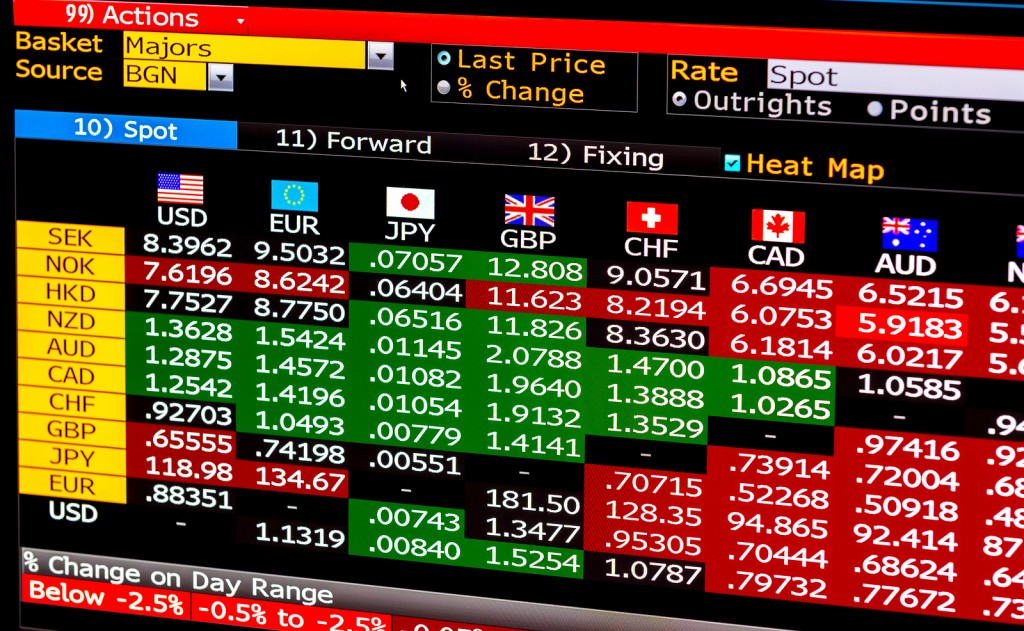English or Numbers? Which is More Important in the Financial Industry?
Do you spend much of your time writing investment recommendations or commentaries? But were your statistics accurate? How often could you produce a well-written analysis on a stock or foreign exchange forecast, but for the numbers to miss your forecast 12 months down the road.
Read More:
- Why Advisors End Up Focusing on Insurance, Estate Products, Less on Investments?
- 8 Reasons why Clients prefer to place Money in Deposits than Investments
- Would You Give the Same Advice to Yourself if You Might Lose Your Job in the Next 6 Months
English or Numbers? Which is more important in Investments & Wealth Management?
No. 1 It Probably has Little to do with Language
Unless you are dealing with contracts, clients’ facing roles, journalism or commentaries, it might have everything to do with numbers and little to do with language. Read More: List of Important Asset Classes
Be it reviewing assets & liabilities on a bank’s balance sheet, analysing stocks, bonds, foreign exchange or commodities, the numbers and statistics takes precedent before producing an article / commentary on it. After all, only the bottomline matters … isn’t it?
A typical attempt to analyse Price / Earnings (P/E) Ratio:
Analysis of P/E Ratios:
- Stock A – P/E Ratio: 13
- Stock B – P/E Ratio: 8
- Index – P/E Ratio: 10
A Possible Commentary:
Stock A has a higher P/E ratio of 13 compared to stock B with P/E ratio of 8. With the Index currently having a P/E ratio of 10, Stock B may be undervalued while Stock A may be overvalued.
We forecast a Buy / Sell Rating as the … …
More Add-ons to the Commentary
- Forward P/E
- Revenue & Profit
- Market Capitalisation
- Exchange Rates / Stock Price
- Latest News About Economy / Company
- Comparison with Industry Peers
- 1, 3, 5 , 10 years High / Low
In all, the article can be summarised as :
P/E of A > Index > B = 13 > 10 > 8
No. 2 The Basis is Important, Making Language Important
Being able to know how the numbers are derived are equally important. For example, a lot needs to be explained on the following:
- Why investing into a P/E of 8, 10, or 13 is better?
- When should you invest into a P/E of 8, 10, 13?
- Should P/E be used at all?
- Why is everyone using P/E?
- Is P/E the only determinant?
A well-constructed article gives confidence on the investment / economic views, backed by adequate research, and a strong logical methodology in the written analysis.
No. 3 Same Numbers, Different Opinions

$10: Cheap or Expensive? Record Earnings: Boon or Bane for Consumers? The numbers never lie, but opinions differ. Going through the number of forecasts by financial institutions, economists and Bloomberg or Reuters Analysts forecasts are most frequently concluded with a mean, median, percentile analysis. In other words, a consensus forecasts.
If everyone is using the same data set, why would the opinions differ greatly?
No. 4 What Should You Do?
Many Wealth & Investment professionals struggle in dealing with numbers and opinions in their career. Some advisors simply focus on numbers, some on news, while others focus on basic financial planning and let the investment experts do the job.
Should you as an advisor / specialist be paying more attention to the numbers or the news, updates and basis of investments?
This is the hardest question for many. You are required to look through tons of financial information and data, reviewing what is important and what is not.
With many financial institutions proving varying reports, many qualified financial professionals providing strong and rational opinions, who should you follow?
No. 5 When a Russian or Brazilian FX Trader Enters the Equation

Would the Russian or Brazilian FX trader be interested in your English-written analysis on a USD/JPY trade? Or would they simply look at the numbers?
As their native language is not English, unless your articles are in multiple languages, they will not be reading your articles. Like yourself, they would also be writing analysis and drawing conclusions based on their own economic and investments assessments – that is if they trade based upon written analysis.
For all you know, they might just be buying or selling purely to hedge commercial needs.
No. 6 Is Your Detailed Analysis Impressive?
When you sell a Stock or FX in the market, would the other person (buyer) be impressed by your detailed analysis as to why the stock should be sold?
Perhaps yes, maybe not. But, how many times were you so convinced with a trade idea or investment opportunity only to let the idea evaporate when you hear counter-arguments from someone who gave better logic or a person with more impressive background than you?
English or Numbers, which is more important for you when it comes to evaluating? But if a $1 Million portfolio is earning 20% returns a year, we are all pretty sure that anybody that had invested would be happy with no written reports every single year.
Read More:
- When 2 of the World’s Largest Banks have Opposing Investment Views
- How do you Manage Clients during Financial Crisis & Market Downturn?
- List of Economic Crisis Since 1900 – 2015
- 20 Traders Who Lost More than a Billion
Sign Up / Register
Caproasia Users
- Manage $20 million to $3 billion of assets
- Invest $3 million to $300 million
- Advise institutions, billionaires, UHNWs & HNWs
Caproasia Platforms | 11,000 Investors & Advisors
- Caproasia.com
- Caproasia Access
- Caproasia Events
- The Financial Centre | Find Services
- Membership
- Family Office Circle
- Professional Investor Circle
- Investor Relations Network
Monthly Roundtable & Networking
Family Office Programs
The 2025 Investment Day
- March - Hong Kong
- March - Singapore
- July - Hong Kong
- July - Singapore
- Sept- Hong Kong
- Sept - Singapore
- Oct- Hong Kong
- Nov - Singapore
- Visit: The Investment Day | Register: Click here
Caproasia Summits
- The Institutional Investor Summit
- The Investment / Alternatives Summit
- The Private Wealth Summit
- The Family Office Summit
- The CEO & Entrepreneur Summit
- The Capital Markets Summit
- The ESG / Sustainable Investment Summit




























